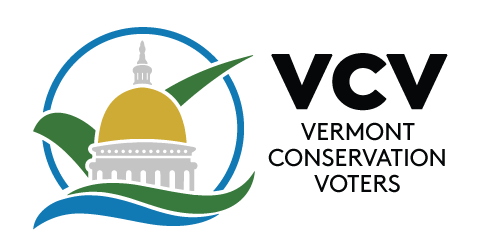Montpelier – Governor Phil Scott, along with numerous elected officials across the country, declared October 12th Children’s Environmental Health Day. Environmental health organizations, medical professionals, business leaders, and members of the public gathered today at the Vermont State House to highlight the day, and to call for stronger protections for Vermont children from harmful chemicals.
“Despite the many successes and advancements in the field of children’s environmental health over the past few decades, today’s children face an epidemic of illness and chronic diseases linked to environmental exposures and our changing climate,” said Carol Westinghouse, President, Informed Green Solutions. “There is an urgent need to put children and families back into the forefront of our nation’s actions regarding health and environment.”
“When I watch my small children put toys in their mouths, I shouldn’t have to worry that those toys contain chemicals that we know are dangerous for their health” said Lauren Hierl, Political Director of Vermont Conservation Voters. “That’s why the Vermont legislature passed the Toxic Free Families Act in 2014 — to better inform parents and protect the health of our children. But so far, it’s still hard to find which children’s products contain harmful chemicals. We need to pass S.103 to improve the Toxic Free Families Act to provide more consumer-friendly information on dangerous chemicals in our kids’ products, and to improve the process for actually getting these chemicals out of children’s products altogether.”
“It’s sad that we can’t rely on our federal government to regulate the toxic chemicals that are released into our environment. Vermont’s Toxic-Free Families Act was a huge step in the right direction. But, unfortunately, its enaction has been riddled with challenges.” Senator Ginny Lyons of Williston. “That’s why we need to close the loopholes in the Toxic-Free Families Act as soon as possible — this legislative session.”
“Children today are exposed to a host of toxic chemicals in their everyday lives that are or have the potential to be harmful. Whether it’s secondhand-smoke or power plant emissions, these substances can cause life changing consequences, such as long term lung disease or lung cancer,” said Rebecca Ryan, Senior Director, Health Education and Public Policy of the American Lung Association in Vermont. “The health of Vermont’s children must be a public health priority- and enacting stronger protections from toxic chemicals and substances will save lives in the long-term.”
Dr. Keith Robinson, pediatric pulmonologist at the University of Vermont Children’s Hospital, outlined why children are especially vulnerable to environmental health issues: “Beginning at the fetal stage and continuing through adolescence, they are physiologically very different from adults. They are in a dynamic state of growth, with cells multiplying and organ systems developing at a rapid rate. At birth their nervous, respiratory, reproductive and immune systems are not yet fully developed. Young children breathe more rapidly and take in more air in proportion to their body weight than do adults. They also have higher metabolic rates and a higher proportionate intake of food and liquid than do adults. Children also have different behavior patterns than adults.”
“All children are affected by environmental hazards. Pollution and environmental degradation know no county, state, regional, or national border,” acknowledged Shaina Kasper, Vermont State Director of Toxics Action Center, “Contaminants are transported through many media including air, water, soil and food throughout the world. However, children living in poverty and children in racial or ethnic communities are at disproportionate risk for exposure to environmental hazards.”
“We know very little about the thousands of unregulated chemicals children are exposed to in their homes and schools every day,” said Johanna DeGraffenreid, Environmental Advocate at VPIRG. “The key to protection is preventing these exposures is passing strong toxics protections here in Vermont including S.103 in 2018, and more protections in the years to come.”
Kay Gebhardt, Senior Sustainability Scientist at Seventh Generation added “Seventh Generation is a successful business, not in spite of chemical restrictions, but because of them. We value enhancing human health, not diminishing it, and by consciously choosing to formulate as we do, we have created a brand that consumers trust and products that families can feel good about using. Today, we’re calling on the governor and the legislature to be bold and compassionate in protecting the health of the next seven generations by improving the Toxic Free Families Act.”
###
